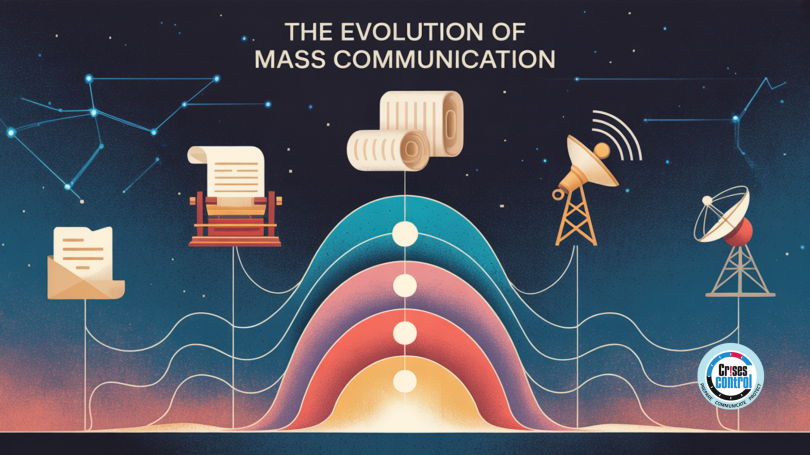The history of mass communication stretches from prehistoric forms of art and writing, through basic printing technology from around 800AD; the invention of Gutenberg’s printing press in 1455; the first weekly printed newspaper in Antwerp in 1605; the invention of radio by Marconi in 1895; television by John Logie Baird in 1925; and finally, to the internet (the World Wide Web) by Tim Berners Lee in 1990.
The numbers reached by each of these art forms and technologies have steadily grown from a handful, to hundreds, thousands and even millions via newspapers, radio and TV. But now, through the medium of the internet, the audience is virtually limitless and certainly in the billions, with an estimated 4 billion having access to the World Wide Web in 2018.
Mass communication has been defined as “the process by which a person, group of people, or organization creates a message and transmits it through some type of medium to a large, anonymous, heterogeneous audience.”
So mass communication has been around for quite some time now in different forms, but the ability for virtually anyone with a connected device to broadcast a customised message to tens of thousands of people is very new. Now almost anyone can be a publisher and a simple smartphone or laptop can be their publishing tool.
So, the potential is now there for organizations to customize their mass communication. But there are still barriers. Weak internet or phone signals, fragmented channel providers, censorship in some countries, data protection and security requirements.
At Crises Control, our mission is to let people communicate anywhere in the world without barriers. Which is why we have global telecommunications providers and multi-channel broadcasts. We also take care of data protection concerns so that our customers can share information safely and securely.
Crises Control enables daily alerting on a limitless scale on routine events; as well as deployment of pre-planned responses to emergency events such as an evacuation, terrorist attack alert or severe weather conditions.
Using daily notifications is a great way to practice for an emergency event, to test to see if your security teams will acknowledge a message, train safety teams on emergency action plans or even notify your employees on routine updates.
Crises Control is there to help you speak out via SMS, Voice, Push notifications or Email on any occasion. Book your free demo now!
Shalen Sehgal
